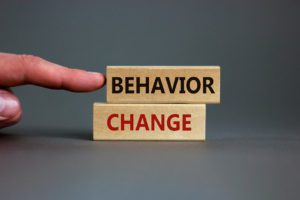7 Reasons To Seek Addiction Treatment
Substance use disorder, which is more colloquially known as drug addiction, is a serious mental...
toll free: 844.955.3042
local tel: 561.464.6505
fax: 561.450.6637
info@recointensive.com
RECO Intensive
140 NE 4th Avenue
Delray Beach, FL 33483
When you first think of addiction, you likely imagine someone pounding beer after beer at a bar or huddled in secrecy with some illicit substance. Not someone who turns up to work exhausted and bleary-eyed after yet another late night at the casino, who spends hour after hour cycling away on the elliptical, or who panics at the thought of even a few minutes away from their iPhone.
But as devastating as addiction to mind-altering substances may be, drugs and alcohol are not the only way that addiction can take hold of someone, or the only way it can wreak havoc on someone’s life and mental health.
A behavioral or “process” addiction is defined as a pattern of behavior that does not involve substance abuse but that a person feels a compulsion to keep engaging in despite its extreme negative consequences on other areas of their life.
Examples of behavioral addictions include sex addiction, shopping addiction, gambling addiction, gaming addiction, food addiction, internet addiction, and exercise addiction. Kleptomania, workaholism, and eating disorders are also sometimes considered under the umbrella of process addictions.


Many of the signs of a behavioral addiction are similar to the signs that characterize substance abuse. For example, sufferers may experience a loss of interest or pleasure in their other everyday activities because they are so consumed and preoccupied by thoughts of their addiction, or may feel compelled to lie to their loved ones in order to hide the unhealthy extremes their addiction has driven them to.
They may also feel a loss of control when it comes to engaging in the behavior, or be unable to curtail their addiction without professional help despite their repeated attempts to stop by themselves.
This may be because these process addictions can result in similar neurochemical “highs” to the physical highs that result from drug use. The two disorders can even lead to similar phenomena of tolerance, with sufferers feeling the urge to engage in more and more of their addictive behavior to achieve the high that will give them relief from their cravings or from the negative emotions that they are using their behavior to escape.
For example, a compulsive gambler may resort to betting larger and larger amounts of money, while a compulsive over-exerciser may find themselves staying ever-longer at the gym.
And, similar to the physical withdrawal that can occur during the course of drug addiction, people who are addicted to a behavior may experience a “psychological withdrawal” characterized by symptoms like intense cravings, increased anxiety, or even fits of rage.


Behavioral addictions are thought to have many of the same root causes as other addictions, such as underlying mental health issues, unresolved traumatic experiences, genetic risk factors, and high stress levels.
Thus, it shouldn’t surprise you to learn that behavioral and substance addictions can often co-occur, feeding into one another and compounding the shame that sufferers may feel and potentially dissuading them from seeking help.
For instance, someone with an eating disorder may turn to using substances to suppress their appetite, a compulsive gambler may drink at the casino to avoid self-consciousness as he engages in his addiction, or a shopaholic ashamed after a spending spree may get high rather than deal with their guilt.
Behavioral addictions can also sometimes spring up to replace substance abuse after someone seeks treatment for a substance addiction but does not fully resolve their underlying issues.
A seemingly less sinister behavior may at first look like a harmless substitute for their life-threatening addiction, as even some people who have struggled with substance abuse may at first scoff at the idea of addiction to something as seemingly innocuous as food or video games being able to pose as serious a threat to their well-being as getting high did.
But story after story of lives devastated by an inability to step away from the slot machine or to turn away from their video-game screen, and the fact that millions of Americans report struggling with these addictions, definitely attests otherwise.


Though process addictions may be less immediately physically dangerous than many substances, that doesn’t mean that they are without their potential physical consequences.
For instance, sex addicts may risk contracting an STD or experiencing an unintended pregnancy, overexercise can result in injuries as one wears out their body from overuse, and over or undereating can both result in serious health consequences.
Depending on the nature of their addiction, behavioral addicts also risk causing serious harm to their relationships through infidelity or deception, getting into financial or legal trouble, or suffering serious consequences in their professional or academic life as they neglect their other responsibilities.
Even if you are able to remain functional despite your addiction through skillful compartmentalizing, conquering it will still be essential to being able to lead a full and happy life.


Since they do not come with the obvious trappings of substance abuse, behavioral addictions may be more difficult for you to spot in yourself or your loved ones. But once you do realize you have a problem, there are plenty of steps you can take to help free yourself from your addiction’s grip.
Seeking out therapy can help you puzzle out the reasons behind your behavior and the role your addiction is playing in your life, as well as to find new, healthier coping strategies that you can use instead of your maladaptive behaviors.
Twelve-step and other support groups also exist for many behavioral addictions—for instance, Gamblers Anonymous and Overeaters Anonymous—and programs like these may also help you find community and understanding as you work your way towards recovery.
Whether you are struggling with substance abuse, behavioral addiction, or some combination of the two, there is hope out there. Suffering from any kind of addiction does not mean that you are a bad person, and Reco Intensive’s comprehensive treatment programs address co-occurring behavioral and mental health issues as well as substance problems.
To learn more about how our professional staff and experienced alumni can help guide you towards a robust recovery, call RECO Intensive at (561) 464-6533 today. Let’s get back to a brighter future.
SOURCES